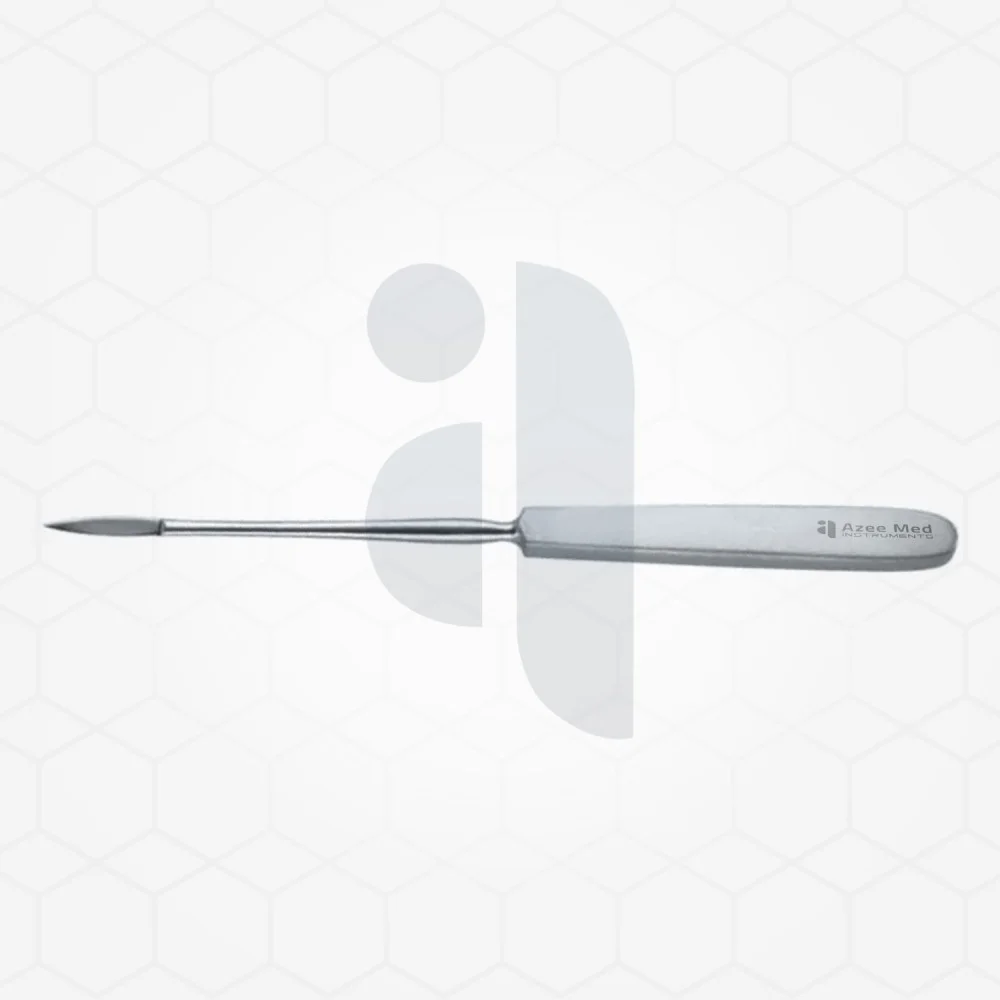The field of neurosurgery is a highly specialized branch of medicine, relying on advanced tools to preserve and protect the intricate complexities of the human brain. Among the array of surgical instruments used by neurosurgeons, the brain knife stands as one of the most critical tools. Designed for precision and functionality, it plays an indispensable role in procedures that demand accuracy and care, ensuring the safety and well-being of patients.
What is a Brain Knife?
A brain knife is a specialized surgical instrument primarily used in neurosurgery. It is designed specifically for tasks that involve cutting delicate brain tissues with extraordinary precision. Unlike conventional surgical knives, brain knives are engineered to minimize damage to surrounding tissues, as even minor errors in brain surgery can have life-altering consequences for patients.
Neurosurgeons rely on brain knives during a variety of procedures, including tumor resections, biopsies, and other intricate operations that require unparalleled accuracy. Each procedure necessitates careful navigation through the brain's complex structure, making the brain knife an indispensable tool.
Purpose and Functionality in Neurosurgery
The primary purpose of a brain knife is to assist surgeons in cutting or dissecting brain tissue safely and with a high degree of control. Brain surgeries are often performed in confined areas where even the slightest misstep can compromise critical neural pathways. The brain knife makes it possible to access specific areas of the brain without causing unnecessary trauma to surrounding tissues, preserving both function and structure.
The ergonomic design of the brain knife is another factor that enhances its functionality during surgery. It is crafted to provide surgeons with a firm grip and ease of maneuverability, even during complex or lengthy procedures. Whether used for separating brain tissue during a tumor removal or accessing deep-seated areas for diagnosis, the instrument enables surgeons to operate with heightened precision, reducing the risk of complications.
Innovative Design and Features
What sets the brain knife apart from other surgical tools is its innovative design. Made from high-quality surgical-grade stainless steel or advanced alloys, the instrument is not only durable but also resistant to corrosion and wear. Its blade is often honed to an extremely fine edge, enabling clean, precise cuts without tearing or damaging fragile tissues.
Some brain knives are equipped with advanced features, such as angled tips or double-sided designs, allowing surgeons to work in hard-to-reach areas of the brain. This level of customization in design ensures that the instrument meets the diverse demands of neurosurgical procedures while maintaining optimal safety and effectiveness. With its lightweight construction and careful balance, the brain knife significantly reduces hand fatigue during prolonged surgeries, ensuring better outcomes for both the surgeon and the patient.
Importance of the Brain Knife in Modern Medicine
The contribution of the brain knife to modern medicine cannot be overstated. Its development has been a game-changer in the field of neurosurgery by enabling medical professionals to perform intricate operations that were once deemed impossible. With the help of this surgical instrument surgeons can now tackle complex conditions such as brain tumors, vascular malformations, and traumatic brain injuries with greater confidence and success rates.
Beyond its technical utility, the brain knife underscores the importance of precision and innovation in medical tools. It demonstrates how advancements in instrument design can directly influence patient recovery times, surgical safety, and overall healthcare outcomes. By minimizing risks and improving surgical accuracy, the brain knife has become a vital instrument for delivering high-quality care in one of the most challenging areas of medicine.
Conclusion
The brain knife epitomizes the fusion of precision, functionality, and innovation required for neurosurgery. Its design and purpose enable surgeons to perform life-saving procedures with unmatched accuracy, ensuring the best possible outcomes for patients. From delicate tumor resections to explorative biopsies, the brain knife stands as a testament to the importance of specialized tools in modern medicine. Through its continued use and refinement, it will remain at the forefront of neurosurgical advancements, improving lives for decades to come.





Comments